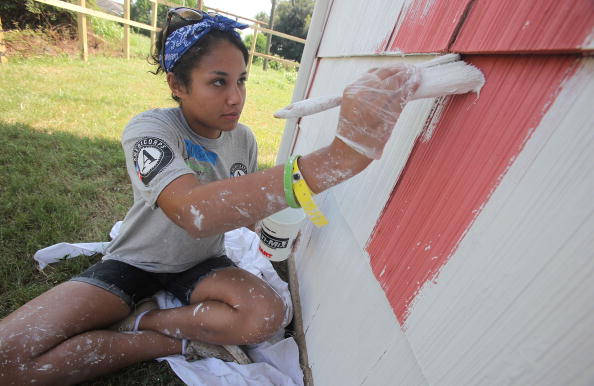Voluntourism: Why students should put their gap year or summer to use before university
'The will to do good, and to help others, comes from a place of selflessness, which is a wonderful thing', writes Gabriel Popham

On paper, voluntourism is possibly one of the best things you could do with your summer or your gap year. Not only do you get to know what it feels like to immerse yourself completely in a different culture, you are also voluntarily giving your time and energy towards the betterment of a community.
In principle, there is nothing wrong with any of this. The will to do good, and to help others, comes from a place of selflessness, which is a wonderful thing.
At the same time, even the best of intentions may not be a good enough reason to sign up for a voluntourism project.
With as many as ten million volunteers a year spending up to $2bn, the industry is immense, but it lacks any kind of systematic regulation that could be used to differentiate the good projects from the dodgy ones. The job of sifting through good and bad volunteering is left to the volunteers themselves, or to self-appointed watchdogs like the helpful Facebook page Better Volunteering.
So, what’s the problem with voluntourism? And how can I make the right decision?
Voluntourism refers to a big chunk of the tourism industry that overlaps with the sector of international voluntary work. It includes hundreds of different types of programs – from wildlife conservation to community work down to education and youth training.
Arguably there are no two identical voluntourism projects, and with so many different types of programs on offer, you could be embarking on a great, sustainable, and important project – or on a not-so-great, shallow, pointless, and even harmful project.
The most prominent articles on voluntourism to be found online typically highlight the problems with gap-year volunteering: it’s fickle, rooted in ‘white privilege’, and might even contribute to illegal operations like child-trafficking in countries like Haiti, Nepal, or Cambodia.
The critiques are all valid; voluntourism is riddled with problems, as anyone working in the field will tell you. But that’s only half the story.
True, there are plenty of shady tour operators taking advantage of unsuspecting backpackers for bogus volunteer projects – but there are also hundreds of excellent volunteer networking organisations who are truly committed to long-term, sustainable projects, and who unfortunately suffer from bad press. Not to call them unsung heroes, but they deserve some credit for the work they do.
When deciding what kind of project you want to sign up for, the first question you should ask yourself is whether you just want to have an ‘alternative holiday’ – off the beaten track and living with locals – or if you want to seriously commit to a development project, in which case it won’t be a ‘holiday’ anymore.
Whatever you choose, you are bound to find a project that is suited to you. The important thing is to be honest with yourself – or you’ll come away feeling disappointed and cheated.
If what you’re looking for is a holiday, then you’re sure to find it. There are hundreds of tour operators running ‘voluntours’ in developing countries. While the legitimacy of some programs may be dubious for the reasons mentioned above, in some cases, this kind of ethical tourism can really benefit a host family in a rural area.
If this is the case, if the host community wants tourists because it helps local businesses, then there’s no reason why you shouldn’t go. If, on the other hand, you want to spend a few weeks or months working on a serious volunteer project, this is where it gets a bit trickier and good judgment is essential.
What kind of work would I be doing? And am I qualified to do it?
For instance, if you sign up to work with or teach, are you the right person for that kind of job?
One tell-tale sign of a serious volunteer organisation is if they ask for criminal background checks and qualifications to work with children. Without these, you wouldn’t be allowed to work with children in the UK, so why should it be ok to do without them abroad?
You might also want to look at the organisation itself and how it presents its webpage.
Last year, a study published by Leeds Metropolitan University found that volunteer tourism organisations which offer the most expensive programs are typically the least responsible, relying more on compelling imagery than on transparent information about the work they do. In other words, watch out for greenwashing.
The recent boom in voluntourism has triggered a very lively debate involving development professionals, activists, former volunteers, and voices from the industry. Voluntourism may be riddled with problems and – although it may be nigh-on impossible to avoid all the potholes – knowing where they are is the best place to start.
Twitter: @PophamGabriel
Subscribe to Independent Premium to bookmark this article
Want to bookmark your favourite articles and stories to read or reference later? Start your Independent Premium subscription today.

Join our commenting forum
Join thought-provoking conversations, follow other Independent readers and see their replies